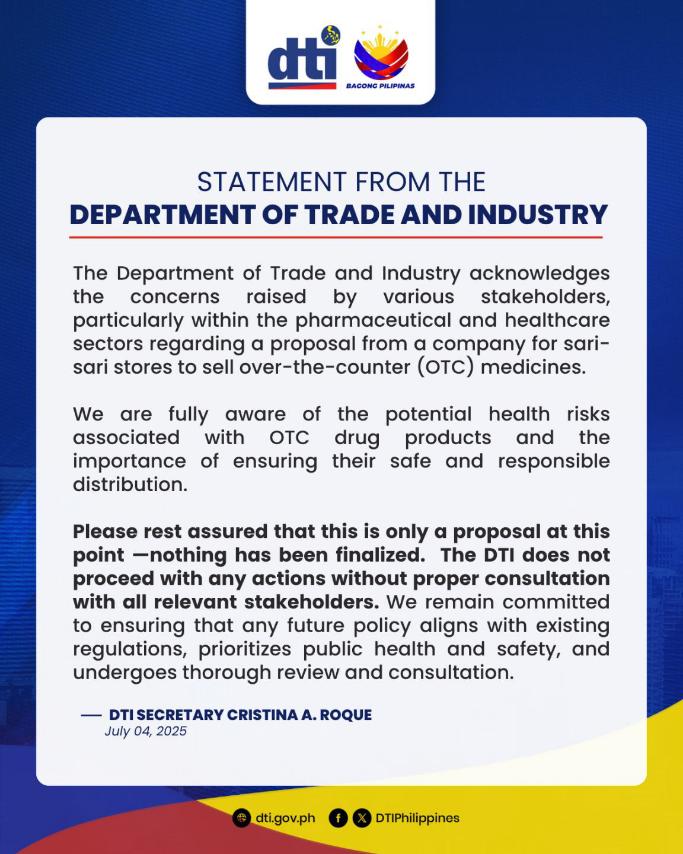

MANILA, Philippines – The Department of Trade and Industry (DTI) acknowledged concerns raised by various stakeholders on the possible risks of selling over-the-counter (OTC) medicines in sari-sari stores or small retails stores.
“The Department of Trade and Industry acknowledges the concerns raised by various stakeholders, particularly within the pharmaceutical and healthcare sectors regarding a proposal from a company for sari-sari stores to sell over-the counter (OTC) medicines,” DTI Secretary Cristina A. Roque said in a statement on Friday.
According to Secretary Roque, the Department is “fully aware” of the potential health risks associated with OTC products and the importance of ensuring their safe and responsible distribution.
She further gave her assurance to the public that “nothing has been finalized” yet, and that selling of OTP in sari-sari stores is only a proposal.
“The DTI does not proceed with any actions without proper consultation with all relevant stakeholders,” she mentioned in the statement.
“We remain committed to ensuring that any future policy aligns with existing regulations, prioritized public health and safety, and undergoes thorough review and consultation,” Roque added.

(Image courtesy of DTI)
Earlier, reports surfaced online that the DTI is exploring possible initiatives to enable sari-sari stores (small neighbourhood convenience stores) to sell OTC medicines.
According to reports, the program aims to create additional income opportunities for small retailers, while improving access to essential healthcare products in the communities.
The DTI acknowledges the importance of the sari-sari store and its contribution to the local economy of small communities.
Because of this, the Department launched an initiative last year focusing on levelling up the sari-sari store, under the program “Tindahan Mo e-Level Up Mo!”, with the aim of equipping micro-retailers with digital tools, knowledge, and sustainable practices.
Former DTI Secretary Fred Pascual called the sari-sari stores as the “backbone of the Philippine economy,” serving as economic hubs that power Filipino households.




